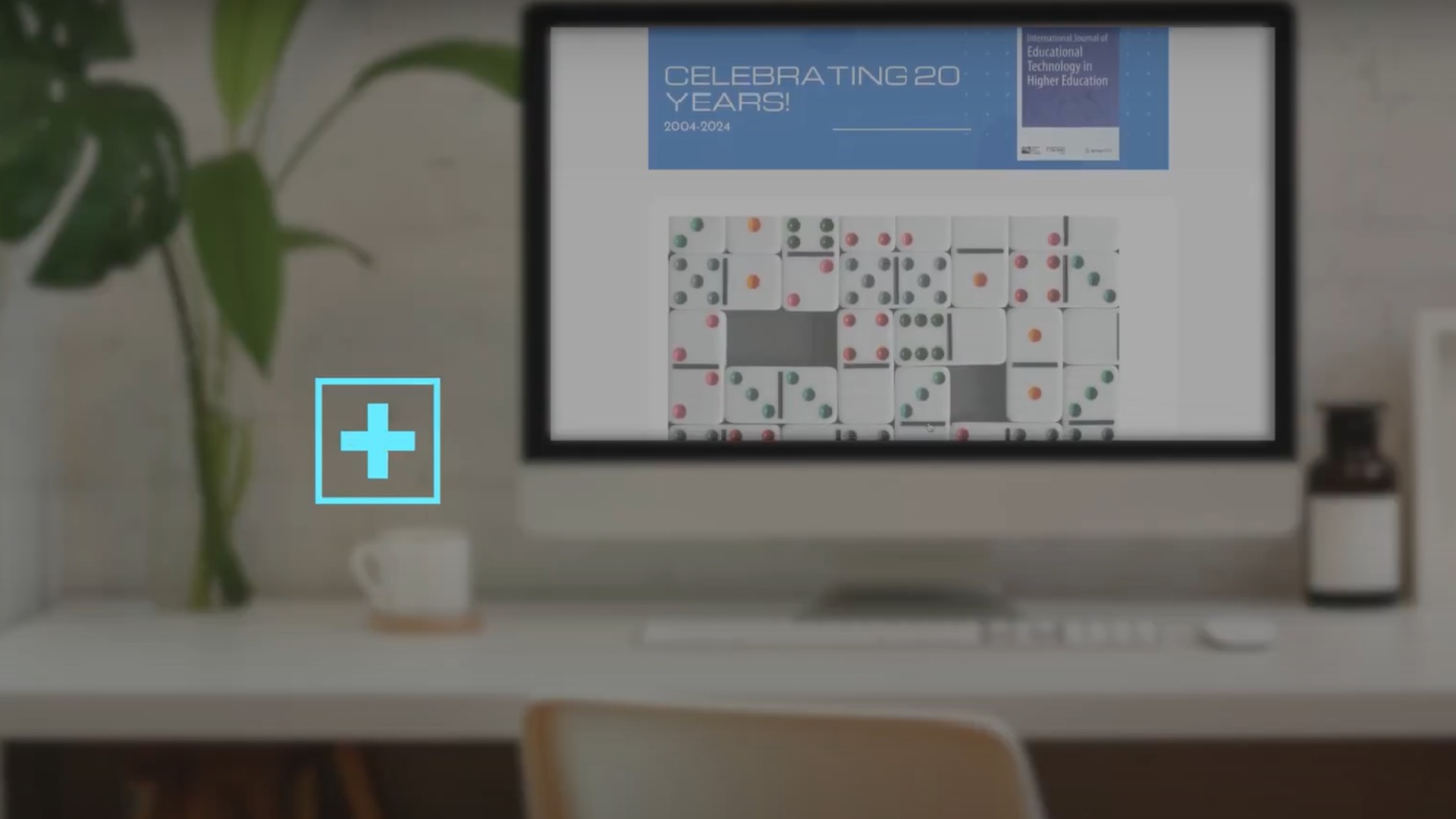Edtech journal ETHE celebrates 20 years as a global leader in open access
Founded in 2004 by the UOC, it appeared at a time when the internet was just beginning to be used in educationAs part of International Open Access Week, the academic journal is celebrating its 20th anniversary with a conference on the challenges facing academic journals in the age of AI
The International Journal of Educational Technology in Higher Education (ETHE), whose editor-in-chief is Professor Josep Maria Duart, celebrates its 20th anniversary this October. Since its creation in 2004, ETHE has become a benchmark in educational technology, positioning itself as the world's leading open-access journal in the field.
ETHE was founded at a time when the use of the Internet in teaching was in its infancy with the aim of disseminating knowledge about e-learning and the transformation of higher education. "The open access model that we've promoted has been fundamental for raising our profile and increasing our impact," said Duart. The journal has not only maintained its commitment to open access since its inception, but has also evolved, changing its name and publishing articles in English since 2010, extending its global reach.
The bibliometric impact of the journal has grown significantly since its inclusion in the Scopus abstract and citation database in 2010, and in Journal Citation Reports in 2016, together with the fact that it is now published jointly with a number of international universities. "We've developed partnerships with institutions on different continents, which has enriched our content and our network," Duart explained, highlighting the links with universities in China, Ireland, Lithuania, Colombia and Chile.
“In recent years, we've experienced an revolution in education that's reflected in the articles published in the journal”

Significant technological changes in recent years
The last few years have been marked by significant changes in educational technology, especially the emergence of artificial intelligence. "In recent years, we've experienced an revolution in education that's reflected in the articles published in the journal," said Duart. Moreover, the current AI revolution poses new challenges regarding ethics and academic integrity.
To mark its 20th anniversary, ETHE has organized a workshop to reflect on the future of academic journals in a world dominated by AI, which will take place on 25 October. "In the articles we publish, we plan to keep adapting and analysing how educational technology continues to influence the development of higher education," Duart explained. The opening will be led by the Vice-Rector for Teaching and Learning, Teresa Guasch, and will feature prominent figures from scientific publishing in Europe and the United States, such as Lucy Dunbar, Senior Editor at The Lancet Digital Health (UK), who will deliver the keynote speech.
International Open Access Week
The event coincides with International Open Access Week, reaffirming the importance of a model that treats knowledge as a public good. "We're proud to have positioned an open-access journal as a leading publication on a global scale, and we'll continue to fight to ensure that knowledge is available to everyone," Duart concluded.
With two decades of experience, ETHE remains a benchmark in research on e-learning and educational technologies, focusing on the future and the new challenges posed by today's society.
800 articles by 1800 authors over 20 years
In 2023, the journal published articles by 219 authors, of whom 115 were women and 104 men. A total of 322 reviewers participated, 180 of them men and 142 women. The editorial board is made up of 55 people (29 women and 26 men). The authors whose works were published in 2023 are from 39 different countries, with a substantial proportion from China (14.61%), the United States (11.42%) and Germany (8.22%). Authors from Spain account for 5.94%.
Since it was founded 20 years ago, ETHE has published some 800 articles, by around 1,800 authors. Over this period, there have been contributions from a total of 41 UOC authors.
More information:
ETHE journal 20th anniversary. Workshop: Scholarly publications' challenges in the generative artificial intelligence era
UOC R&I
The UOC's research and innovation (R&I) is helping overcome pressing challenges faced by global societies in the 21st century by studying interactions between technology and human & social sciences with a specific focus on the network society, e-learning and e-health.
Over 500 researchers and more than 50 research groups work in the UOC's seven faculties, its eLearning Research programme and its two research centres: the Internet Interdisciplinary Institute (IN3) and the eHealth Center (eHC).
The university also develops online learning innovations at its eLearning Innovation Center (eLinC), as well as UOC community entrepreneurship and knowledge transfer via the Hubbik platform.
Open knowledge and the goals of the United Nations 2030 Agenda for Sustainable Development serve as strategic pillars for the UOC's teaching, research and innovation. More information: research.uoc.edu.
Experts UOC
Press contact
-
Leyre Artiz


